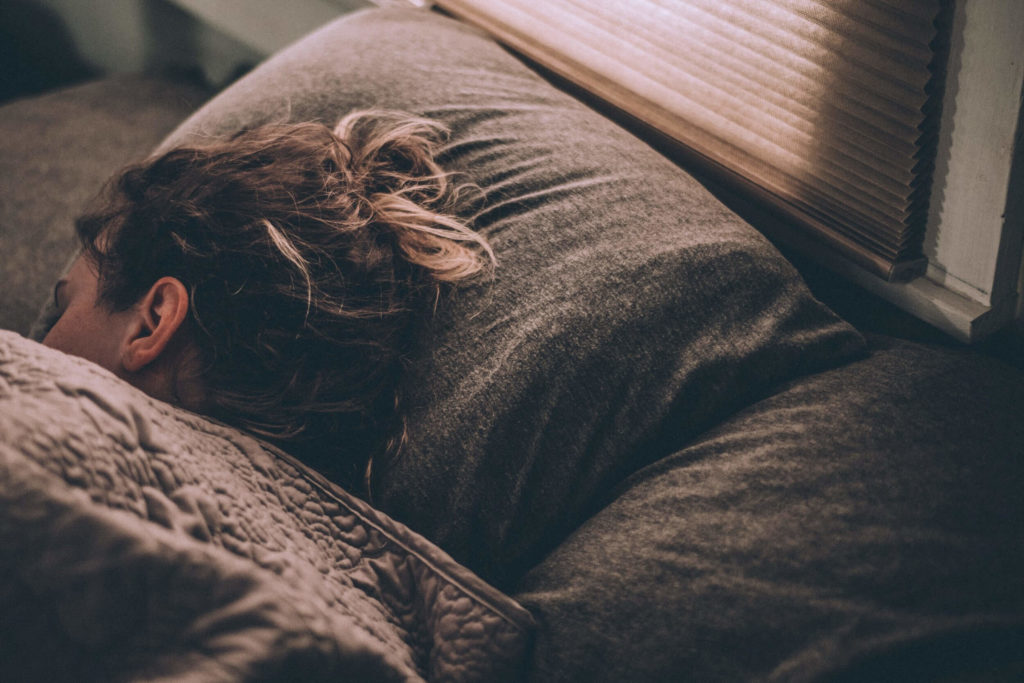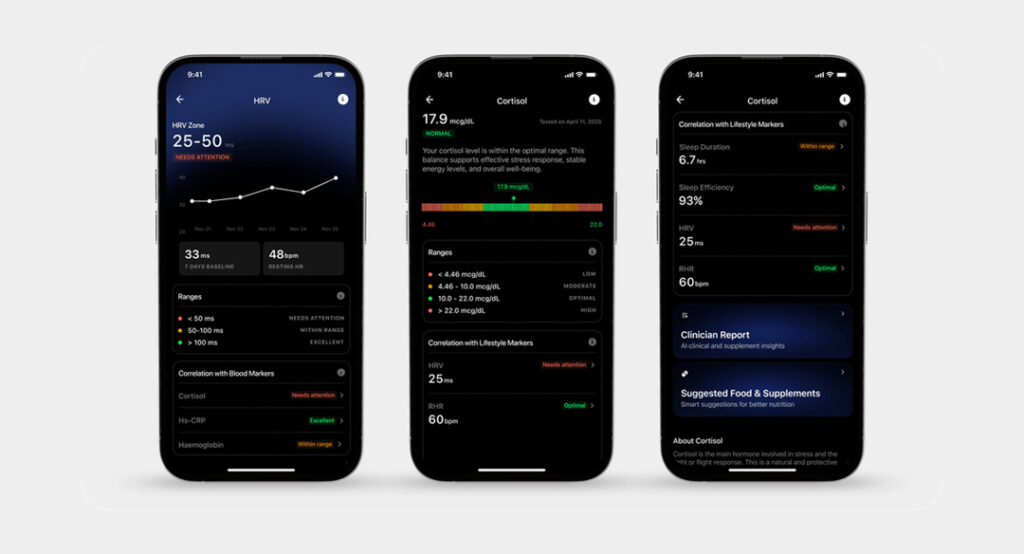Sleep is the greatest recovery and health tool in our health arsenal. However, sleep is influenced by everything that we do in a day.
Sleep is governed by our emotional state, food intake, specifically what we eat and when we eat.
The balance of exercise and the recovery process affect sleep. It is also important to be aware of our exposure to real and artificial light. Another important element of sleep is the state of our hormones at that given point in time.
The menstrual cycle and its four stages is a period of many hormonal changes that could cause irregularities in our sleep cycle. In this blog, let’s explore some of the effects of our menstrual cycle on our biological clock, governing our sleep-wake cycles, also known as the circadian rhythm.
Highlights
- Sleep issues can occur 3-4 days before menstruation often accompanying premenstrual syndrome,
- The balancing of hormones can be done by good sleep hygiene in terms of limiting blue light exposure at bedtime, having an optimal sleep temperature in the bedroom, limiting alcohol use in the evening,
- Nutraceutical and supplementation strategies could also go a long way into helping the balance of hormones and sleep.
Sleep Stages
In order to understand the influence of the menstrual cycle on sleep, let us first understand what are the different sleep stages.
Sleep stages are defined by the type of electrical activity of the brain measured in clinical settings by EEG or Electroencephalogram.
Stage 1: Represents light sleep just after we fall asleep, this is where breathing regulates, our muscles begin to relax and the frequency of our brain waves becomes slower than being awake.
Stage 2: Represents the period of immersion into sleep and it is more difficult to be awakened and the brain waves are characterized by sawtooth brain waves or k complexes and sleep spindles.
Stage 3 and 4: Represent ‘deep sleep’ and this is where the brain waves enter a phase known as SWS or slow wave sleep. This is where we get a portion of restfulness and physical recovery. We have less deep sleep as we age and instead have greater periods in stage 2 sleep.
Stage 5: Represents REM sleep or the period of rapid eye movement. This stage of sleep is associated with dreaming. This resembles the brain waves of the wakeful state.
However the skeletal muscles are without movement, though the heart rate can increase and the breathing can also be erratic and irregular. REM sleep consolidates learning and memory and also plays a role in brain development and mood.
After the REM sleep there may be small periods of wakefulness and then the cycle starts again from stage 1 sleep. It is important to realize our sleep cycles through these stages 4-5 times a night on average and each cycle lasts between 90-110 min each.
Sleep and the menstrual cycle
Sleep issues can occur 3-4 days before menstruation often accompanying premenstrual syndrome. This is where the levels of estrogen and progesterone are very low immediately after higher progesterone levels that were preparing the body for pregnancy.
Remember that higher progesterone levels also enable the body to stay asleep as a preparation for pregnancy. As we come close to menses the progesterone levels fall causing disturbances in all our stages of sleep.
Some women may also experience problems with sleep for the same low hormone levels but played out during the first few days of menstruation because of cramping, headaches, digestion or some other physical discomfort.
The next potential state for insomnia is during the later part of ovulation or approximately the later period of the 14 days right after menstruation. Estrogen levels during this period are high and also have an excitatory function especially for women who are in a biological state to conceive.
The immediate stage just after ovulation may also cause a sleep disturbance. We have to especially consider the 24-hour period after the release of the ovum that increases body temperature due to an increase in progesterone.
Understanding that falling asleep especially is facilitated by the lowering of body temperature, the spike in body temperature makes it difficult for the body to slow down and enter the sleep cycle efficiently.
Ways to regulate sleep cycle
Today we have a wide range of technology in terms of wearables and apps to track and keep a diary of our sleep in concert with our menstrual cycle. This diary can give us precision-oriented interventions to create a comfortable experience by balancing our hormones for menstruation and sleep.
The balancing of hormones can be done by good sleep hygiene in terms of limiting blue light exposure at bedtime, having an optimal sleep temperature in the bedroom, limiting alcohol use in the evening.
We can also include a nutritional awareness to synchronize our hormones with strategies such as seed cycling. Nutraceutical and supplementation strategies could also go a long way into helping the balance of hormones and sleep. Listening to bedtime stories can also have a relaxing effect that results in better sleep.
Conclusion
If you find your sleep problems are interfering with your ability to function during the day, it’s important to seek professional help. Sleep is a sign of our overall well-being
After all, we need a good night’s sleep to be healthy, but we also need to be healthy to get a good night’s sleep!
Disclaimer: The contents of this article are for general information and educational purposes only. It neither provides any medical advice nor intends to substitute professional medical opinion on the treatment, diagnosis, prevention or alleviation of any disease, disorder or disability. Always consult with your doctor or qualified healthcare professional about your health condition and/or concerns and before undertaking a new health care regimen including making any dietary or lifestyle changes.







